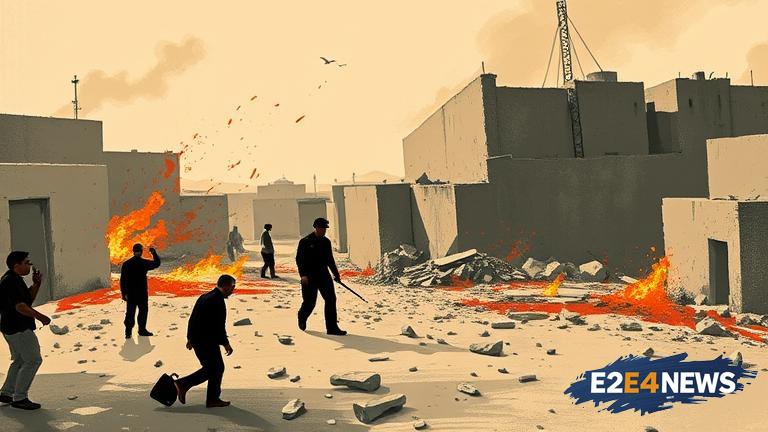The Israel-Palestine conflict has been a persistent and complex issue, with roots dating back to the early 20th century. The conflict has been marked by periods of relative calm, punctuated by outbreaks of violence and bloodshed. In recent years, the situation has become increasingly volatile, with the Israeli government’s expansion of settlements in the West Bank and East Jerusalem sparking widespread condemnation. The Palestinian leadership has long advocated for a two-state solution, with Israel and Palestine existing as separate, independent entities. However, the Israeli government has been reluctant to commit to this approach, citing security concerns and the need to maintain control over key territories. The election of Donald Trump as US President in 2016 marked a significant shift in the international community’s approach to the conflict. Trump’s decision to recognize Jerusalem as Israel’s capital and relocate the US embassy sparked widespread outrage and condemnation from the international community. The move was seen as a major blow to the prospects of a two-state solution, with many arguing that it would embolden Israeli expansionism and undermine Palestinian claims to the city. Despite this, the Palestinian leadership has continued to advocate for a two-state solution, with many arguing that it remains the only viable path to a lasting and just peace. The Israeli government, however, has shown little willingness to compromise, with many officials expressing skepticism about the feasibility of a two-state solution. The situation on the ground has become increasingly dire, with the Gaza Strip facing a major humanitarian crisis due to a lack of access to basic necessities like food, water, and healthcare. The Israeli military has been accused of using disproportionate force against Palestinian civilians, resulting in significant loss of life and injury. The international community has been criticized for its failure to take decisive action to address the crisis, with many arguing that a more robust and coordinated approach is needed to bring about a lasting resolution. The United Nations has played a key role in efforts to resolve the conflict, with the Security Council passing numerous resolutions calling for a two-state solution and an end to Israeli settlement expansion. However, the implementation of these resolutions has been hindered by the lack of a unified international approach and the veto power wielded by the US. The European Union has also been a key player in efforts to resolve the conflict, with many member states expressing strong support for a two-state solution. However, the EU’s approach has been criticized for being too focused on economic incentives and not enough on political pressure. The Arab world has also been a key player in efforts to resolve the conflict, with many countries expressing strong support for Palestinian rights and statehood. However, the Arab world has been criticized for its lack of unity and coordination, with many countries pursuing their own individual agendas. The conflict has also had significant regional implications, with the rise of extremist groups like Hamas and Islamic Jihad posing a major threat to stability and security. The situation has become increasingly complex, with the involvement of external actors like Iran and Turkey adding to the tensions. Despite the challenges, many argue that a two-state solution remains the only viable path to a lasting and just peace. The international community must take a more robust and coordinated approach to address the crisis, including the implementation of economic sanctions and diplomatic pressure. The Israeli government must also be willing to compromise and make significant concessions, including the freeze of settlement expansion and the recognition of Palestinian statehood. The Palestinian leadership must also be willing to make difficult decisions, including the recognition of Israel’s right to exist and the renunciation of violence. Ultimately, the resolution of the conflict will require a fundamental shift in the approach of all parties involved, including a willingness to compromise and make significant concessions. The international community must also be willing to take a more active role in promoting a lasting and just peace, including the provision of economic and diplomatic support to both parties. The situation is complex and challenging, but with a concerted effort and a willingness to compromise, a two-state solution can still be achieved.





